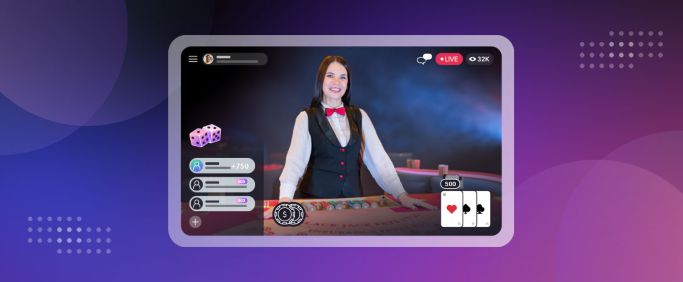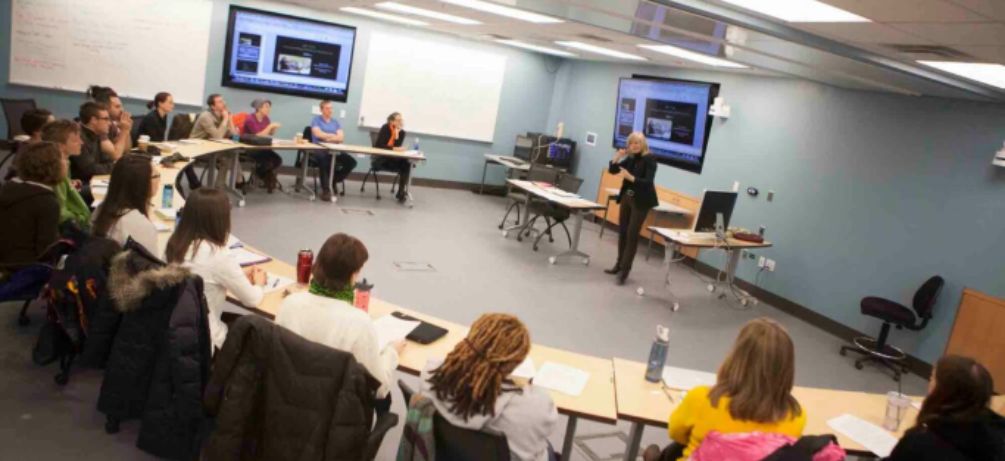Deaf Canadians rely on clear communication in vital spaces like schools and hospitals. CASLI, with over 835 professional interpreters, ensures these conversations happen smoothly. From legal advice to academic presentations, CASLI(Avlic)-trained interpreters play a key role.
Beyond traditional spaces, CASLI is also helping to improve accessibility in areas like online entertainment and gambling platforms, ensuring inclusive communication for Deaf and hard-of-hearing players.
Making Online Casinos Deaf-Friendly with Interpreters
Online casinos are now exploring ways to cater to a broader audience by integrating features like live dealer games, interactive tutorials, and customer support in sign language. For example, live dealer games could incorporate interpreters into the video stream to explain the rules or signal important updates during a game. Some platforms might also train dealers to use simple, universally recognized signs for common actions.
In fact, some of the most player-friendly platforms offer the best online casino in Canada experience by leading the way in accessibility and implementing features that enhance inclusivity. On these platforms, players can find detailed reviews, security insights, and recommendations for top-rated sites that prioritize fairness and user-friendly gameplay. Many of these casinos also integrate responsible gaming measures, ensuring a safe and enjoyable environment for all users.
Whether you’re looking for seamless mobile compatibility, generous bonuses, or top-tier customer support, these platforms highlight the best options available. Finding a platform that supports these innovations ensures a better experience for all players, including those who are deaf or hard of hearing. Here’s how simple gestures can improve communication at the tables:

| Phrase | Standard Sign/Gesture |
|---|---|
| Place Your Bets | Open palm toward the table, tapping twice |
| No More Bets | Hand waving side-to-side (stop motion) |
| Dealer Wins | Pointing to the dealer with one finger |
| Player Wins | Pointing to the player with one finger |
| Tie | Two fists bumping together |
By using these simple gestures or involving interpreters, online casinos can make games more inclusive and enjoyable for Deaf players. Platforms could also add pre-recorded sign language tutorials or real-time interpreter support for questions about game rules, promotions, or troubleshooting. This approach not only makes games accessible but also demonstrates a commitment to diversity and inclusion.
As more platforms adopt these features, there’s a growing demand for interpreters to specialize in online gaming and casino support. This new area of work could open doors for interpreters while creating better experiences for Deaf users. Next, let’s look at how CASLI’s work helps interpreters take on roles like these and why their support is vital across Canada.
What is CASLI and Why it Matters
The Canadian Association of Sign Language Interpreters (CASLI) started in 1979 as AILVC/AVLIC (Association of Visual Language Interpreters of Canada) and got its current name more recently. It’s the main organization for professional sign language interpreters in Canada, making sure interpreters meet high standards and helping connect them with people who need their services.

A key milestone came in 1983 when they launched the Canadian Evaluation System (CES), setting national standards for interpreter certification. In 2016, they signed a groundbreaking Memorandum of Understanding with AQILS (Association québécoise des interprètes en langues des signes) to strengthen French-LSQ interpretation services. By 2018, the organization had grown so much they rebranded as CASLI to better reflect their national scope and bilingual mandate.
Some quick facts:
- Over 835 active members across Canada
- Runs the only national certification program for ASL-English interpreters
- Partners with 7 regional chapters across different provinces
- Holds major conferences every 2 years
How CASLI Works: By-Laws and Structure
CASLI operates under the Canada Not-for-Profit Corporations Act, guided by foundational documents like the Bylaw Relating Generally to the Conduct of the Affairs of the Association of Visual Language Interpreters of Canada, updated in 2015, 2017, and later ratified as CASLI’s own by-laws in 2018. These by-laws ensure clear governance, outlining the responsibilities of the national board, regional chapters, and committees. Regular updates, like those in 2022, keep CASLI adaptable to evolving professional standards.
The organization’s structure includes:
- A national board of directors
- Regional affiliate chapters
- Task forces and committees to address specific issues
CASLI depends on skilled professionals, including the executive director, who fulfill the essential responsibilities outlined in the director’s job profile. This role ensures programs like the Canadian Evaluation System (CES) run effectively, advancing interpreter certification and professional development.
How CASLI Makes a Difference
CASLI does three main things:
- Sets professional standards for interpreters.
- Provides certification through their evaluation system.
- Connects qualified interpreters with people who need them.
What makes them unique is their close work with Deaf organizations. They have formal partnerships with:
- Canadian Association of the Deaf
- Canadian Cultural Society of the Deaf
- Association québécoise des interprètes en langues des signes
Membership Types and Who Can Join
Before diving into membership types, let’s be clear: CASLI maintains strict standards to ensure quality interpreting services across Canada. For those interested in becoming a Deaf interpreter, they have designed their membership structure to support both working professionals and those entering the field.
Here’s a clear breakdown of membership options:
| Membership Type | Who Can Join | Key Requirements | Rights and Benefits |
|---|---|---|---|
| Active Members | • ASL-English Interpreters • LSQ-French Interpreters • Deaf Interpreters | • Graduate from recognized interpreter education program • Maintain professional standards • Pay annual fees | • Full voting rights • Can be listed in directory of interpreters (directory of members) • Access to certification • Professional development opportunities |
| Student Members | • Current IEP students • Deaf individuals in interpreter training | • Enrolled in recognized program • For Deaf students: Agreement to complete requirements within 4 years | • Can attend meetings • No voting rights • Reduced fees • Access to resources |
| Affiliate Chapters | • Regional interpreter organizations | • Share CASLI’s goals • Submit constitution and bylaws • Meet professional standards | • Three votes at meetings • Regional representation • Collaboration opportunities |
Each membership type comes with specific responsibilities and benefits. The key is finding the category that matches your current professional status and goals. CASLI also offers membership leaves and reinstatement options for those who need to pause their active status temporarily.
Finding an Interpreter Through CASLI
Whether you’re looking for an ASL interpreter in Alberta or elsewhere in Canada, CASLI maintains an online, searchable directory of qualified interpreters. You can search by:
- Location
- Type of interpreting needed
- Certification level
- Areas of expertise
Currently, the directory of members lists 835 interpreters across Canada. All listed interpreters are active members in good standing who chose to be listed.
Interpreter Education Programs (IEPs) in Canada

If you’re wondering how to be an ASL interpreter, there are 6 main interpreter education programs in Canada:
- Vancouver Community College in BC provides a Sign Language Interpretation Diploma with strong ties to the local Deaf community and extensive practical training.
- Lakeland College in Alberta has temporarily suspended their program, which specialized in rural and remote interpreting services. Restructuring plans are under review.
- Red River College Polytechnic in Manitoba runs a joint program with the University of Manitoba, combining academic study with hands-on interpreter training.
- George Brown College delivers Ontario’s only bachelor’s degree in interpretation, offering a four-year program in Canada’s largest Deaf community.
- Université du Québec à Montréal operates the only LSQ-French interpretation program, serving French-speaking communities across Canada.
- Nova Scotia Community College offers a two-year diploma focusing on Maritime Deaf culture and practical interpreting skills.
Program length varies from 2-4 years, with some offering diplomas and others bachelor’s degrees. Additionally, some of these institutions provide online ASL interpreter training, making it easier for students to study remotely.
Additional Interpreter Education Programs Recognized by CASLI
CASLI recognizes both current Canadian IEPs and additional programs, including former Canadian and international ones. These programs meet CASLI’s standards for training professional interpreters. Examples include Gallaudet University, Douglas College, and UQAM for LSQ-French membership. Graduates from unlisted IEPs can undergo a review to confirm their program’s equivalency. For those without formal IEP credentials, the Prior Learning Assessment & Recognition (PLAR) process offers an alternative pathway to membership.
Getting Certified: The Canadian Evaluation System
CASLI runs the Canadian Evaluation System (CES), the only national certification program for ASL-English interpreters. This is essential for anyone pursuing a master’s in ASL interpreting or exploring advanced skills to further their career.
The CES includes:
- Written knowledge test
- Skills evaluation
- Professional development requirements
- Regular maintenance of certification
Fun fact: As outlined in the Bylaws Relating Generally to the Conduct of the Affairs of CASLI, only certified members can legally use the title “certified interpreter.”
Professional Development and Recognition
CASLI’s professional development opportunities include conferences, workshops, and partnerships with educational institutions. These initiatives benefit both practicing professionals and students enrolled in interpreter university courses or language interpreter courses.
CASLI holds conferences every two years. Recent locations include:
- 2018: Niagara Falls
- 2020: Vancouver (Online due to COVID)
- 2022: Virtual AGM
They give out several awards:
- Edward C. Bealer Award of Merit – for significant contributions
- Phyllis Joynt Mentorship Award – includes $250 bursary
- R.W. Letourneau Service Award – includes free membership year
- David Still Memorial Award – $500 for graduating students
Helpful Links and Resources
CASLI collaborates with over 25 partner organizations to enhance interpreting services and uphold professional standards. These include the Canadian Association of the Deaf (CAD-ASC) and the Canadian Cultural Society of the Deaf (CCSD), ensuring services align with community needs. They also partner with international groups like the Registry of Interpreters for the Deaf (RID, USA) and the World Association of Sign Language Interpreters (WASLI) to stay updated on global practices.
Regionally, CASLI works with organizations such as ATIA in Alberta, ATIM in Manitoba, and ATIO in Ontario for localized support. Additional resources come from groups like CTTIC, Critical Link, and the Translation Bureau. Members also access CASLI’s extensive online library, featuring 1,000+ professional development materials, research papers, and training tools, ensuring they stay informed and connected.
CASLI’s Code of Ethics: Doing the Right Thing
Think of CASLI’s Code of Ethics and Guidelines for Professional Conduct as the rulebook for professional interpreters in Canada. It’s pretty straightforward: keep information private, do your job well, treat everyone fairly, and run your business honestly. Every one of CASLI’s 835+ members has to follow these rules.
The Code isn’t just words on paper. It helps solve real problems. In 2023 alone, CASLI handled over 50 cases where people had questions about interpreter conduct. They help sort out issues like payment disputes and make sure everyone gets fair treatment.
Want to know if an interpreter is following the rules? CASLI lets you check their status online. They update their member directory every month, so you always know who’s in good standing.
Their Contribution to the Deaf and Interpreting Communities
CASLI gets things done. Since 2018, they’ve helped set up interpreting services in 127 new healthcare locations across Canada. They’ve worked with provincial governments to improve coverage for interpreting services – in Ontario alone, this meant 3,000 more hours of covered service in 2023.
They don’t just talk about education – they back it up. Each year, CASLI gives out $25,000 in scholarships to interpreter students. They’ve helped develop training programs at six major Canadian colleges and universities. Their mentorship program has matched over 200 new interpreters with experienced professionals since 2020.
Looking for proof of their impact? Check out these numbers: CASLI members provide more than 100,000 hours of interpreting services each month. They work in hospitals, courts, schools, and businesses. When COVID hit, they helped train 500+ interpreters in remote interpreting techniques within three months.
All this work makes a real difference. Just ask the 47,000 Deaf Canadians who use interpreting services. CASLI keeps working to make sure they can access the services they need when they need them.
Need More Information?
You can reach CASLI at:
- Voice/VP: 437-370-8127
- Text: 289-988-3397
- Email: [email protected]
They also maintain active connections with interpreter organizations worldwide and provide links to helpful resources through their website.
Remember: CASLI doesn’t book interpreters directly – they provide the network and standards that help you find qualified professionals for your needs.
This overview shows how CASLI works to maintain high standards in Canadian sign language interpreting while supporting both interpreters and the communities they serve. Whether you need services or want to join the profession, understanding CASLI helps you navigate the world of professional sign language interpretation.
Additional Resources for Specialized Interpreting
- Interpreting Legal Discourse & Working in Legal Settings by Debra Russell.
- Team Interpreting: Best Practices by Debra Russell.
- Occupational Health and Safety for Sign Language Interpreters by Kathryn Woodcock, PhD, PEng, and Steven L. Fischer, MSc, CK.